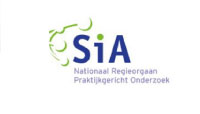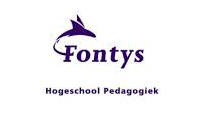EARLI 21 Presentation: Family-school partnerships
Family-school partnerships with migrant families and low-SES families
Abstract
This study investigates teachers’ communication with at-risk parents (e.g. Dutch low SES parents and migrant parents), based on 55 in-depth interviews with primary school teachers in the southern part of the Netherlands. Teachers were asked how they communicate with parents with a different cultural or ethnic background and/or home language and to give concrete examples of these discussions. A total of 104 examples from 34 teachers were analysed. We checked if these teachers are sensitive, compassionate and responsive to the needs of migrant parents and Dutch low SES parents; interested in their home situation, background, and home language; non-judgemental and understanding, and how they support these parents. The results illustrate that (1) teachers are sensitive, compassionate and encouraging towards parents with no money, a refugee status, poor language skills, and poor parenting skills, (2) teachers discuss poverty, abuse, and neglect in a non-judgemental way, (3) they put extra time and effort in aligning reciprocal expectations in case of conflicting opinions on children’s upbringing, and (4) while language barriers and poor language skills are challenging, teachers do their best to communicate with parents. Several strong involvement practices are reported, to support parent’s self-efficacy. The study underlines the need for schools to choose parent involvement strategies that work with the population of their school, considering differences in cultural norms by socio-economic status of their school population.
Introduction
Given the positive effects of educational partnerships on children’s outcomes, establishing and strengthening parent-school relationships is very important. Yet, this can be a challenging task, especially for parents with a migration or low SES background. Previous studies have shown that the educational level of parents, migration status, and family material deprivation, can influence parents’ investment and involvement in children’s education. For instance, parents with a lower SES are less involved in their children's school career, and migrant parents report less school involvement and less positive relationships with teachers (Waanders et al., 2007). Alongside demographic factors, it is important to also focus on factors which relate to cultural contact and communication (Altschul, 2012; Li, 2003;). For parents with other linguistic and cultural backgrounds (and maybe less familiarity with the education system), these contact and communications factors can be challenging (Sohn & Wang, 2006; Turney & Kao, 2009).
Parents who have higher self-efficacy are more likely to be motivated to participate in their children’s education than parents whose self-efficacy is lower, and more willing to interact with teachers (Hoover-Dempsey & Sandler, 2005). Parents are more likely to be involved in their children’s school career when teachers are responsive towards parents’ role conceptions, ideas about upbringing, and their home language. Also, frequent, clear and two-way communication is important (Bakker, Denissen, Dennissen & Oolbekkink- Marchand, 2013). Effective communication between teachers and families provides the two parties with a deeper understanding of mutual expectations and children’s needs. This enables both parties to effectively assist children and to establish a basis of cooperation. This holds specifically for children of lower socio economic status and children with academic problems and behavioural difficulties (Kim, Sheridan, Kwon & Koziol, 2013).
Aims
The study was carried out in the southern part of the Netherlands. In this former mining district there is a persistent achievement gap, and poverty problems are also persistent. Over 20 percent of the children come from low-income and undereducated families and are considered low SES, compared to nine percent countrywide (Statistics Netherlands, 2017). Most undereducated families are from Dutch origin. They speak a local dialect and often have poor language skills. Migrant families are only ten percent of the population in this region. Schools receive additional funding given the problem concentration based on income level and social benefits use (Jansen & Kuppens, 2015).
As part of a larger study we investigated parent’s perceptions on home-school collaboration, and communication practices applied by teachers in respect of children’s special needs (Leenders et al., 2018; 2019).
The aim of this study is to gain deeper insight into teachers’ communication with Dutch low SES parents and migrant parents.
The research question, addressed in this paper is: How do teachers communicate with parents with a different cultural or ethnic background and/or home language (dialect included)?
Methodology
In 2017 semi-structured in depth interviews were carried out among 55 primary school teachers (about 4.5% of the total teacher population from two participating school boards).
We asked teachers how they discuss their respective tasks and responsibilities with parents, how they come to agree on reciprocal expectations and ambitions concerning the child’s development, how they involve parents in child-related decisions, how they support parents in children’s home assistance. work assistance, and how they discuss difficult themes. We asked teachers explicitly to give examples of these discussions with parents with a different cultural or ethnic background and/or home language.
Transcripts were analysed using qualitative thematic analysis (Boyatzis, 1998). Atlas-TI was used in the analysation process, both to develop codes and to re-code data. Peer debriefing sessions (Lincoln & Guba, 1985) with the research team helped to clarify the interpretation of the data and to discuss alternative explanations.
For this presentation, we looked again into our qualitative data set. Thirty-four out of 55 teachers gave concrete examples of discussions with parents with a different cultural or ethnic background and/or home language, 104 in total. These text fragments were further analysed. We checked if teachers (1) are sensitive, compassionate and responsive to these parents’ needs, (2) interested in their home situation, background, and home language, (3) non-judgemental and understanding, and (4) how they support these parents.
Findings
We found no negative attitude towards vulnerable parents or multi problem families. In all cases teachers appeared to be sensitive, compassionate and encouraging towards parents with no money, a refugee status, poor language skills, poor parenting skills, psychological problems etcetera. Difficult themes were discussed (e.g., poverty, abuse, neglect). In all examples, teachers appeared to be non-judgemental about these parents.
Teachers gave several examples of differing and conflicting opinions on children’s upbringing and educational aims, like low expectations of daughters among Travels parents, Islamic fathers, and high expectations among Chinese parents. In all these cases teachers are understanding and put extra effort (e.g. take their time) in aligning reciprocal expectations, while trying to save the child’s best interest.
Teachers often speak dialect to Dutch parents with poor language skills to make them feel at ease. They use simple daily life examples to support parents whose self-efficacy is lower, while being aware of the risk of stigmatizing. This also holds for parents with a migration background. Language barriers are sometimes challenging. Teachers use interpreters, people from the neighbourhood and all kinds of imagery to communicate with these parents. In some schools, teachers arrange for migrant mothers and undereducated Dutch mothers to become a reading mom.
We will share strong involvement practices teachers use to support parent’s self-efficacy in our presentation.
Theoretical and educational significance
Broomhead (2014) reported educational practitioners becoming de-sensitised to what they perceived as the chaotic and dysfunctional home lives of the pupils and their parents. Difficult situations are often related to negative emotions among parents and teachers (Lasky, 2000; Van der Wolf & Everaert, 2005). However, Denessen and Raket (2016) showed that teachers in general intend to respond with understanding and empathy to challenging parents and that they put effort into building constructive relationships with these parents. Our study is in line with these findings.
References
Altschul, I. (2012). Linking socioeconomic status to academic achievement of Mexican youth through parent involvement in education. Journal of the Society for Social Work and Research, 3, 13-30.
Bakker, J., Denessen, E., Dennissen, M., & Oolbekkink-Marchand, H. (2013). Leraren en ouderbetrokkenheid. Een reviewstudie naar de effecten van ouderbetrokkenheid en de rol die leraren hierbij kunnen vervullen [Teachers and parental involvement. A review study on the effects of parental involvement and the teachers’ role]. Nijmegen: Radboud Universiteit.
Boyatzis, R. E. (1998). Transforming qualitative information: Thematic analysis and code development.New York: Sage.
Broomhead, K. (2014). ‘A clash of two worlds’; disjuncture between the norms and values held by educational practitioners and parents of children with behavioural, emotional and social difficulties. British Journal of Special Education, 41(2), 136–150.
Denessen, E., & Raket, L. (2016). Houdingen van leerkrachten ten aanzien van ouders en hun emoties, reacties en gevoelens van competentie bij verschillende uitingen van ouderbetrokkenheid [Teachers’attitudes, emotions and sense of competence in relation to different kinds of parental involvement]. Pedagogiek, 12(3), 245–265.
Gwernan-Jones, R., Moore, D. A., Garside, R., Richardson, M., Thompson-Coon, J., Rogers, M., & Ford, T. (2015). ADHD, parent perspectives and parent–Teacher relationships: Grounds for conflict. British Journal of Special Education, 42(3), 279–300.
Hoover-Dempsey, K.V., & Sandler, H.W. (2005). Final performance report for OERI Grant 3 R305T010673. The social context of parental involvement: a path to enhanced achievement. Nashville: Vanderbilt University.
Jansen, M., & Kuppens, E. (2015). Op zoek naar de Limburg-factor. Geleen: GGD ZuidLimburg.
Kim, E. M., Sheridan, S., Kwon, K., & Koziol, N. (2013). Parent beliefs and children’s social behavioral functioning: The mediating role of parent–Teacher relationships. Journal of School Psychology, 51, 175–185.
Lasky, S. (2000). The cultural and emotional politics of teacher-parent interactions. Teaching and Teacher Education, 16, 843–860.
Li, J. (2003). U.S and Chinese cultural beliefs about learning. Journal of Educational Psychology, 95(2), 258–267. DOI 10.1037/0022-0663.95.
Leenders, H., Haelermans, C., De Jong, J., & Monfrance, M.(2018). Parents’ perceptions of parent teacher relationship practices in Dutch primary schools. An exploratory pilot study. Teachers and Teaching. Theory and Practice. DOI 10.1080/13540602.2018.1456420
Leenders, H., De Jong, J., Monfrance, M., & Haelermans, C. (2019). Building strong parent–teacher relationships in primary education: the challenge of two-way communication, Cambridge Journal of Education, (1-15). DOI 10.1080/0305764X.2019.1566442
Lincoln, Y. S., & Guba, E. G. (1985). Naturalistic inquiry (Vol. 75). New York: Sage.
Sohn, S., & Wang, X. C. (2006). Immigrant parents' involvement in American schools: Perspectives from Korean mothers. Early Childhood Education Journal, 34(2), 125–132. DOI 10.1007/s10643-006-0070-6
Statistics Netherlands. (2017). Population, key figures. Retrieved from http://statline.cbs.nl
Turney, K., & Kao, G. (2009) Barriers to School Involvement: Are Immigrant Parents Disadvantaged? The Journal of Educational Research, 102, 257-271. DOI 10.3200/JOER.102.4.257-271
Waanders, C., Mendez, J. L., & Downer, J. T. (2007). Parent characteristics, economic stress and neighborhood context as predictors of parent involvement in preschool children’s education. Journal of School Psychology, 45(6), 619–636.
Wolf, K. van der & Everaert, H. (2003). Teacher Stress, Challenging Parents and Problem Students. In S. Castelli, M. Mendel, & B. Ravn (Eds.), School, Family, and Community Partnership in a World of Differences and Changes (pp. 135-146). Gdánsk, Poland: University of Gdánsk.
<< terug naar het overzicht

